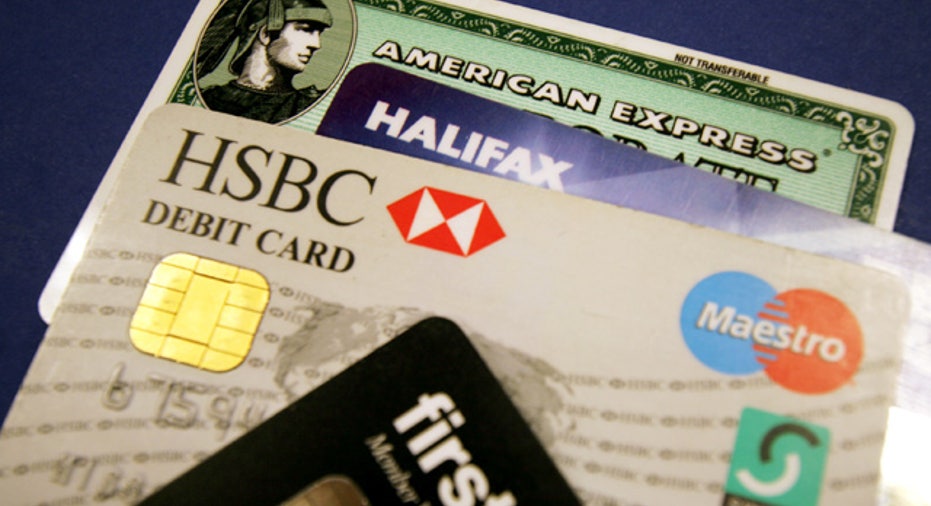Here Comes the CFPB

The much vaunted and feared Consumer Financial Protection Bureau officially opens for business next week.
When it does, it will most likely have a laundry list of consumer issues to manage, a smaller budget than it asked for, and an empty chair where its director should sit.
Welcome to Washington, CFPB!
Consumer advocates nonetheless applaud the new agency as an important step. "Consumers shopping for a mortgage or credit card or using other financial products now have a watchdog in Washington to help make sure they get a fair deal instead of a financial headache," said Pamela Banks, senior policy counsel for Consumers Union.
Maybe so, but consumers shouldn't expect too much protection from the fledgling agency as soon as it bolts from the gate.
"You can't just start an agency and all of the sudden the world is better for consumers, particularly when you have companies and banks and payday lenders spending millions of dollars to defang it." says Ira Rheingold, executive director of the National Association of Consumer Advocates.
Even before the agency goes live, the Republican-controlled House Oversight Committee will call its would-be director, Elizabeth Warren, on the carpet Thursday to defend its pre-launch activities.
"I expect you to remain before the committee until all members of the committee have had all of their questions answered and thus ask that you clear your schedule for the full day of the hearing," Republican Committee Chairman Darrell Issa wrote to Warren.
The House Appropriations Committee has only allowed the agency $200 million for fiscal year 2012 -- $129 million less than the agency says it needs.
So Warren -- who has been acting in an advisory capacity to get the agency started -- and her colleagues have their work cut out for them. The first item of business may be to get a director. Consumer fans of Warren still hope that President Barack Obama will simply use a congressional recess (if there is one) to make her the director of the agency she conceived and created.
Shortly after that -- or even before -- the agency plans to tackle a slew of consumer issues, including mortgage disclosures, bank examinations and credit reporting and scoring.
But consumer borrowers and savers cannot afford to wait patiently for the CFPB to launch itself. After all, it takes even a well-funded and managed agency a long time to consider, propose, issue and enforce new rules. In the meantime, the rest of us must go about our lives, borrowing money, paying bills and opening accounts.
So wish the CFPB well, but look after yourself while you wait for the new and improved world of consumer regulation.
Here are some ways to be your own regulator:
-- Read, read, read. The agency has made the most noise so far about its plan to make mortgage disclosures clear and uniform. How much are you borrowing and how much is it going to cost you? Though the CFPB has twice solicited comments for its proposed super-simple form, other issues remain: Will those forms be binding? And when will mortgage shoppers see them?
If consumers have to apply for a mortgage before they get those disclosure forms, what good will they do? "Those forms should be binding offers and people need to be able to shop around with it," Rheingold says.
Bottom line? If you are shopping for a mortgage, ask that question yourself: How much am I borrowing and what will it cost?" Use websites such as Mortgage Marvel (http://www.mortgagemarvel.com), which include estimated closing costs in the payment information they publish for comparison shoppers.
-- Go local. Just because the Feds aren't ready to jump on every case of financial injustice doesn't mean there is no regulator out there if you have a serious complaint. Most state attorneys general have a consumer protection office under their jurisdiction. A variety of county offices also review consumer complaints, and the Federal Trade Commission and other federal agencies monitor credit and other issues. If you suspect that you are being ripped off, contact all of those agencies until you find the one that will look at your case.
-- Monitor your own credit record the right way. The CFPB will be studying the credit scoring industry, and in particular look at why the same consumer can end up with different credit scores, and whether consumers are seeing (and paying for) the scores that are significantly different than the scores the lenders are using. Consumers can head off most credit scoring problems by making sure the information in their credit report is accurate. Those reports are free at AnnualCreditReport.com (http://www.annualcreditreport.com). Consumers can get a rough idea of their credit scores by checking websites that offer free scores. And if they are getting ready to borrow money, they can pay for their FICO scores, the ones used by most lenders to determine credit-worthiness.
-- Watch that space. The CFPB already has a website and blog at ConsumerFinance.gov (http://www.consumerfinance.gov), so you can check back there to see what the agency is up to.
Warren says Thursday, July 21, promises to be a busy day -- it will hit the ground running. (The Personal Finance column appears weekly.



















